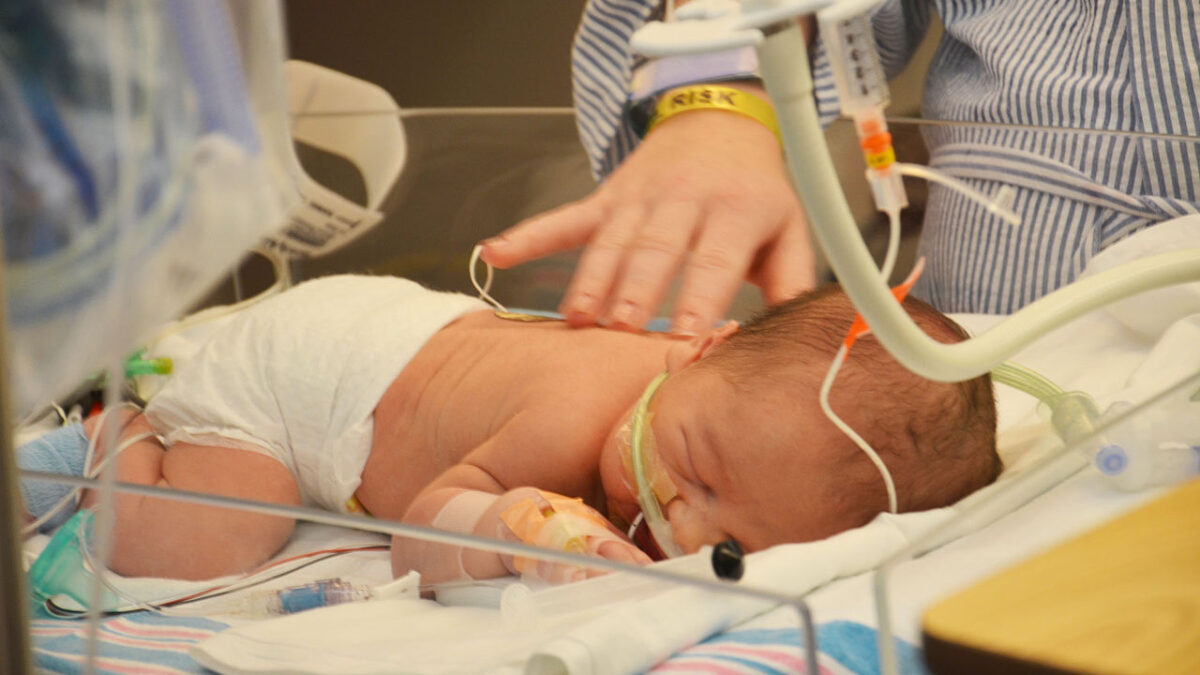
In another post-Dobbs salvo, North Carolina legislators have kept their promise to tighten abortion restrictions in the Old North State. The “Care for Women, Children, and Families Act,” voted into law on Tuesday, May 16 after hours of contentious debate, repeals and replaces the existing North Carolina abortion law, which allowed abortions up to 20 weeks.
Under the new legislation, abortions will be unrestricted for the first 12 weeks of pregnancy. The law also allows abortions in cases of rape and incest up to 20 weeks and in cases of a “life-limiting anomaly” for the baby up to 24 weeks. In cases of “medical emergency,” statutory language that has remained unaltered from the previous law, abortion will be permitted at any time.
The bill also provides for $160 million in funding for women’s and children’s needs, from statewide parental leave policies to childcare stipends and safe surrender for children given up for adoption. As the bill’s sponsor stated during the floor debate, it is intended to be a comprehensive “pro-life plan” with the goal of making it easier for a woman to choose to keep her baby. The policies are based on statistics showing that nearly three-fourths of women considering abortions would prefer to keep their children if they did not face such daunting financial, logistical, emotional, relational, and other obstacles.
In the Senate debate to override Democratic Gov. Roy Cooper’s Mothers’ Day veto, opponents of the bill were concerned about the additional restrictions it imposes on women seeking abortions before 12 weeks. Specifically, the law requires patients to appear for a series of in-person consultations to discuss the risks of a surgical abortion.
The law also imposes additional administrative burdens on hospitals, from additional reporting and inspection requirements to penalties for non-compliance. Some Democrats, Cooper included, are calling this law a “blanket ban” given these additional obstacles. In the House debate, one Democratic woman claimed that so-called “forced pregnancy” would endanger women with conditions “incompatible with pregnancy,” like terminal illnesses or mental health conditions requiring treatment.
Yet House and Senate Republicans emphasize that the law generously allows for abortions at any time in the case of a medical emergency posing an immediate threat to the woman’s life or health. And as to the additional administrative burdens, the bill’s sponsors claimed, these are “guardrails” that ensure that abortion facilities are held to the very same standards as ambulatory surgical clinics. Most importantly, however, the legislation ensures women are given full, comprehensive, and honest information about what abortion will entail before they make this weighty, irreversible decision.
“It is not cruel to inform women of their options,” one female Republican senator said during the floor debate on Monday.
Personal views on abortion aside, this legislation is intended to provide sweeping and comprehensive support for women. Its goal is not to restrict and suppress, but rather, empower and inform. Or, as one senator noted, its ultimate goal is to remove a woman from the crisis “that would lead her to have an abortion.” The bill passed 72-48 in the House and 30-20 in the Senate and will be effective on July 1.









